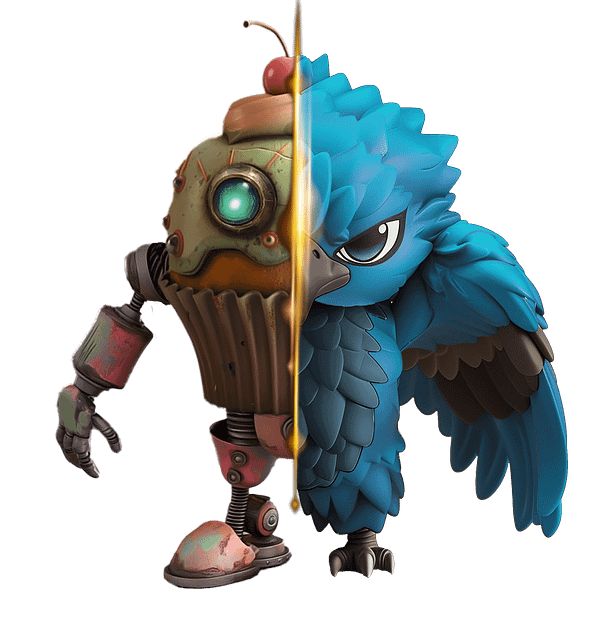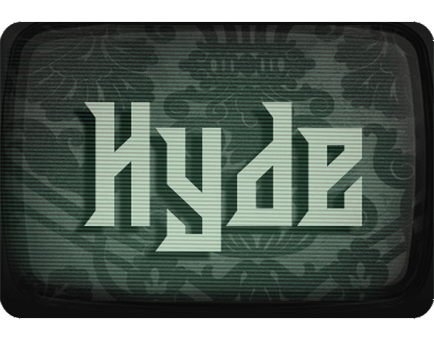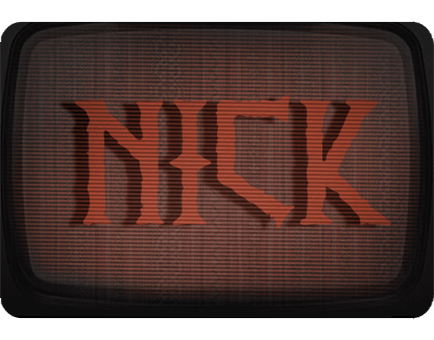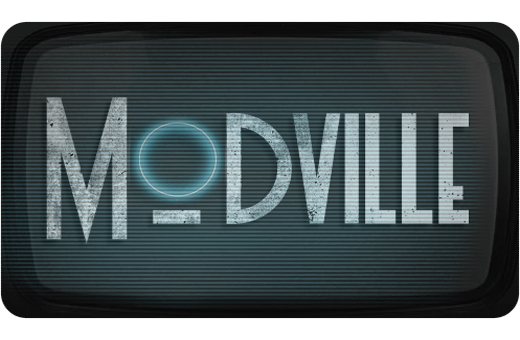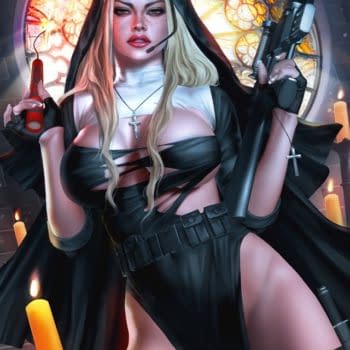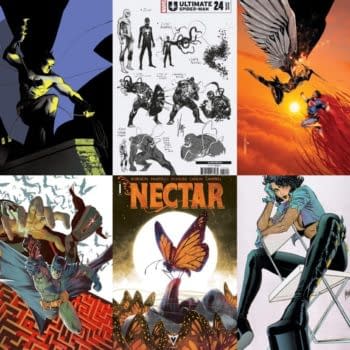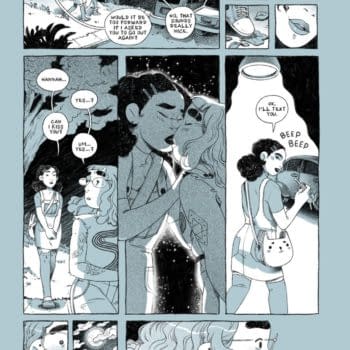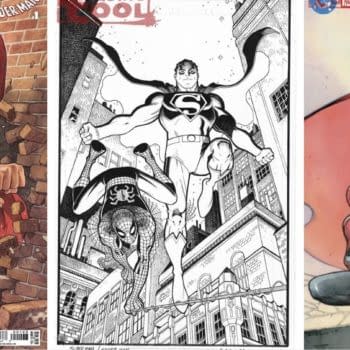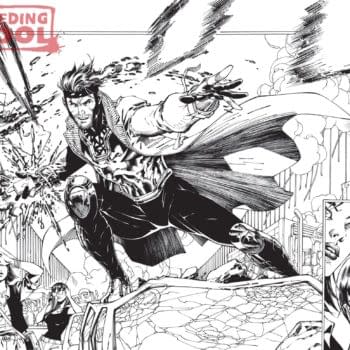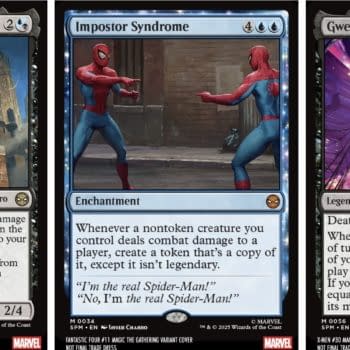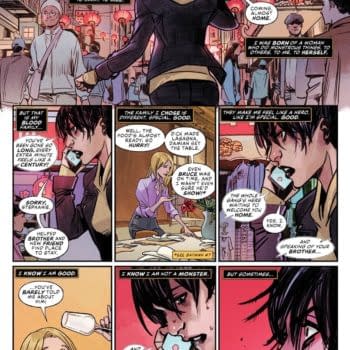Posted in: Comics, Current News | Tagged: Dave Elliott, ridley scott
Dave Elliott, New Publisher/EIC of Mechanical Cake with Ridley Scott
Mechanical Cake has made Dave Elliott its new Publisher/Editor in Chief, with Ridley Scott, Bill Sienkiewicz, Chris Weston, and more.
Article Summary
- Dave Elliott named Publisher/EIC of Mechanical Cake, joining forces with Ridley Scott and top comic book artists.
- Mechanical Cake to release three graphic novels: Modville, Hyde, and Nick, featuring an array of unique stories.
- Ridley Scott praises Mechanical Cake for understanding graphic novel art, collaborating on intriguing projects.
- Jesse Negron discusses the complex journey and creative process behind the creation of the Modville series.
Mechanical Cake is a new comic publisher with Dave Elliott as Publisher/Editor in Chief, Jesse Negron as CEO with Ridley Scott and comic book artists Bill Sienkiewicz, Chris Weston, Dan Panosian, Brian Rood, and Hendry Prasetya creating three graphic novels, Modville, Hyde, and Nick.
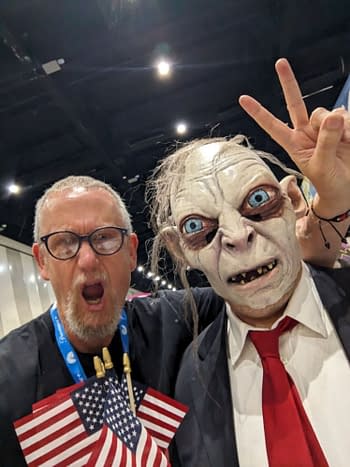
Dave Elliott has worked in every aspect of comics for over four decades, from writer and artist to editor, publisher, and marketer. In the eighties and nineties, he founded Atomeka Press to publish the anthology A1 with Garry Leach, as well as working on Warrior, Deadline, Viz Comic, Heavy Metal, Penthouse Comix, 2000AD, Justice League, Transformers, GI Joe, Ghostbusters, and Doctor Who. In 2006, Dave co-founded Radical Studios as co-publisher and EIC, developing comics such as Hercules, adapted into the film starring Dwayne Johnson, Oblivion starring Tom Cruise, Freedom Formula, Schrapnel, Caliber, Hotwire, and Last Days of American Crime. In 2011, he was EIC of Benaroya Publishing at Image Comics for producer Michael Benaroya, for which he co-created Marksmen and Red Spike. He also created the series Sharky and Maximum Force, worked with Fall Out Boy, NASCAR/MMI, was made content producer for DeviantArt as Managing Editor and co-founded a graphic novel series about teenagers who have experienced trauma and abuse. For the past five years, Dave has been working extensively with young adults with learning difficulties and challenging behaviour, but Mechanical Cake has pulled him back in.
Ridley Scott said, "Mechanical Cake is a terrific company. They understand the art of graphic novels. As an artist and painter, these projects are exciting to me, and I look forward to collaborating with Jesse, Tom, Dave, and the Mechanical Cake team."
That would be Tom Moran, Senior VP Development & Production at Scott Free and overseer of the joint venture with Mechanical Cake, who added, "Ridley and Tony Scott are known as great filmmakers (Alien, Blade Runner, Top Gun, True Romance) but few people realize their shared first true love of painting and art is what drove both of them into filmmaking. For the first time in Scott Free's history, we are excitedly diving into comics as a new way to explore art and storytelling."
Modville is a Sci-Fi/Southern Gothic crime drama involving AI humans ("mods") in future New Orleans. Hyde imagines a world where Robert Louis Stevenson's "Mr. Hyde" did not die, and instead lives beneath the streets of London where he conducts experiments on others. Nick is a foundational Yule war story, steeped within the arcane Norse legends.
Modville Book 1 of 8, over 100 pages, drawn by Hendry Prasetya and Eko Puteh, is complete and will be available for pre-order in March 2025, along with first-issue previews of Hyde and Nick. A sneak peek at all three projects is available at Mechanical Cake/
Mechanical Cake, headquartered in Los Angeles, is a production company formed in 2015 by Jesse Negron (CEO) and Tom Sanders (COO) to pursue the creation, acquisition, and development of breakthrough intellectual properties.
Jesse Negron talked us through creating Modville in six chapters…
CHAPTER 1
In so many creative industry stories, people seem to pop out of nowhere, but in reality, they've been grinding away for a long time. The road to making the Modville graphic novel series began in that hideous state of Florida. Between wrestling alligators and shooting beer cans off my friends' heads, I got a bit of classical art training at Florida State University. I also made a film there (thanks, Burt Reynolds, for funding the program) and got hooked on all forms of visual storytelling.
CHAPTER 2
Then I went to UCLA Grad Film School (culture shock) and, in addition to film production, I studied story structure under Dr. Howard Suber (he started the UCLA Film Studies Department and wrote The Power of Film). I inherited his obsession with diagnosing what gives myth and great stories such lasting power (later I ended up teaching myth and story at the university level). UCLA Alum Francis Coppola came to teach quite a few classes and it was phenomenal to hear crazy, first-person stories about some of the greatest films ever made. I read all the early drafts of The Godfather to understand how the script developed. Because there were only 12-15 students in the room, I got personal time with Francis, and I learned that being completely nuts (the good kind) was an asset as a storyteller.
CHAPTER 3
Shortly after grad school, I was able to put my story chops to practice when I was brought on as a writer and picture editor for an MGM project called Pop&Me. I took hundreds of hours of documentary footage and, over a year, moulded it into a film that made the Academy Award shortlist (top 12). At that point, financial investors had confidence that I could deliver a project, so I raised money to create and shoot a project about fighter pilots (a real-life Top Gun). That's what led me to my most significant relationships in the film business – Tony Scott and Scott Free. Together, we made a TV series for CBS, with Tony Scott, Ridley Scott, and me as executive producers. I also developed some other projects with Tony, including a series for HBO. Mentorship wasn't something Tony did reluctantly. He dove in with his usual twenty-something energy, and he treated me, just as a kid, as an equal. I got to watch Redford and Will Smith dailies (footage) come in, then sit in edit and mix sessions to see films come together. As a bonus, I got to hear Tony's irreverent, often off-color stories delivered with flawless British deadpan. That was my second film school. What did I take away from it? Just look at Tony's work. He's no typical action director. His characters are driven, visceral, and unhinged. True Romance was always my favorite Tony movie. If you worked with Tony, you loved him. One time I pitched him a project, and it just wasn't good. Two days later, I got a handwritten note that read the following: "Jess, Thanks for coming in. I know how nerve-wracking it is to pitch. It was a privilege to hear your ideas." What? Who in this business thinks of others like that? Virtually every pitch meeting I'd been in before (or since), the people I was pitching to wished I would die. Tony signed the note and drew a cartoon picture of himself with his pink hat and cigar. It's one of my most cherished possessions.
CHAPTER 4
When Tony passed away, it brought shock and disillusionment. I fell out of touch with Scott Free. I began to think deeply about why this idiot from Florida (that would be me) came to Los Angeles. Looking back, I had been feverishly writing and developing, but I had nothing to say. Now, I'd lived some life, and I had my own unhinged stories I burned to tell (self-indulgent alert). It was time to get to work. It took over five years to write Modville (8 100-page graphic novels). I also developed two or three other stories I cared deeply about. I never stopped honing my art and visual skills (digital art and VFX paid a lot of bills) so I was able to create elaborate pitch books for my projects that featured story, characters, visuals and world-building at the Scott Free level.
CHAPTER 5
It's time to talk about my other great Scott Free friendship. Back in the day of my TV show with Tony and Ridley, Tom Moran was Tony's assistant. Not just any assistant, my favorite assistant on the planet. Tom was a straight shooter from Texas, full of terse, snarky one-liners. He was about my age and there is something with young people who come to "Hollywood" that bonds us together – partly the dream, partly the reality of getting beat up by the business. Scott Free then was a magical place, and we knew it. Some of the most iconic films were being made around us. We were working with the guys who made Top Gun, Man on Fire, Alien, and Blade Runner. And there were always dogs wandering the concrete floors because they let you bring in your pets. I hadn't spoken to Tom since those golden days and as almost a fluke, I thought I would reach out to Scott Free and see if he was still around. Holy cow, he was the Senior VP of Development and Production. But when we spoke on the phone, neither of us gave a shit about the business stuff, we just wanted to hang out again. A few days later, I drove to Scott Free for the first time since the Tony days. Let me tell you, I have been to just about every big production company and Studio and never felt a thing. Pulling into the Scott Free parking lot that day was so emotional I had to walk for a little bit before going inside. Tom and I had a great meeting, swapped Tony stories and started talking shop. As I showed him my "unglued" projects, we both knew what the other one was thinking. Tony had brought us together to do something special.
CHAPTER 6
Soon after, Tom Moran and I were discussing how Modville had an "insane world-building quality" (his words) to it, like a "dark comic book." CLICK. It all came together. In my time away, I created a few graphic novels and I even had a project that took over an entire issue of Heavy Metal Magazine. Tom and I had also been musing about how hard it is to make a great film anymore because everything has to be filtered and safe. My stories weren't safe. It started to make a lot of sense to produce Modville as a graphic novel series. Tom took the idea to Ridley (an artist and painter before he was a filmmaker), who was very enthusiastic, saying, "Why didn't we go into comics ten years ago?!" So that was it. Ridley would lend his meticulous eye and his legendary world-building skills, and we would enter the graphic novel space. So, my company, Mechanical Cake and Scott Free, partnered up with a new charge — to create graphic novels at the Tony/Ridley level. In one of our first team conversations, we all agreed that we would find a way to distribute directly to you, the audience, so you can experience our stories exactly as they were intended. You can decide whether they're worth your while. If you feel like the work has been cursed by the patron saint of mediocrity (yes, Amadeus reference), then I'll just go back to restoring my little 1970s sports car I bought for $1500 off Craigslist. The world doesn't need any more uninteresting drivel. I hope you enjoy Modville.


